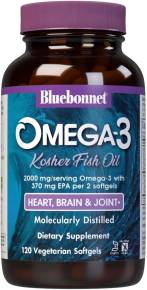Taking the time to brew a hot cup of tea can help ease anxiety and stress.
Researchers have found that simply holding a warm mug gives you a more generous, kind demeanor and improves your perception of others.
Of course, the herbs themselves offer many other health benefits, aside from mental health management.
Here’s what you need to know if you’re in need of a stress-free tea time.
Different Types of Tea
The tea world can be divided in half: camellia and herbal.
-
Herbal Teas
Herbal teas contain no Camellia sinensis. Instead they are flavorful infusions of botanical roots, bark, leaves, seeds, and other plant parts.
Technically, an herbal tea is known as a tisane. Rooibos, or red tea, constitutes its own province in this realm.
-
Camellia Teas
Camellia sinensis leaves are used for a variety of types of tea: black, oolong, green, and white.
The differences between each involve various degrees of oxidation and how the tea leaves are processed.
All these teas are rich in flavonols (plant-based antioxidants) like quercetin, kaempferol, and myricitin.
-
Black Teas
Black tea leaves are oxidized up to four hours. Oolong oxidizes for two to three hours.
During oxidation, camellia leaves evolve chemically, resulting in characteristic color and flavor changes.
Due to oxidation, black tea has a stronger, more bitter taste than green or other teas.
Benefits of Black Tea
-
Heart Health
Several studies suggest drinking between three to five cups of this tea daily may support heart health.
One study shows that those who drink more than 16 fluid ounces of black tea daily have a 50% lower prevalence of cardiovascular disease than those who don’t drink tea.
Another study indicates that people who consume more than three cups of black tea a day can reduce their risk of having a heart attack by 43%, compared to those who don’t drink tea.
Drinking black tea may also boost heart health by improving cholesterol levels. A U.S. Department of Agriculture trial found that those who drink five cups of black tea daily, while consuming a diet moderately low in fats and cholesterol, had a decrease in LDL cholesterol of 11% in only three weeks.
-
Bone Strength
In addition, black tea seems to improve skeletal mass in older women.
One study assessed bone mineral density (BMD) in tea drinkers and non-tea drinkers to find that tea drinkers had an average of 5% greater BMD than non-tea drinkers.
Study authors suggest that tea’s flavonoids may influence BMD.
-
Stress Recovery
Black tea may even assist the body in recovery from stress.
Men who drank tea four times a day for six weeks had lower levels of the stress hormone cortisol in their blood after a stressful event, compared to the control group that did not drink tea.
-
-
Green and White Teas
Green and white teas, by contrast, are not oxidized at all but are steamed, rolled, and dried.
Green tea comes from mature leaves. White tea results from immature leaves harvested prior to their opening fully, when the buds feature a fine, white, hair-like substance.
Green and white teas are the least processed forms of true tea, giving them slightly less caffeine, more antioxidants, and greater health benefits.
Benefits of Green Tea
Perhaps the most notable tea for health is green. Many reports cite it for overall good health, possible cancer prevention, and other benefits.
Green tea boasts more scientific research than any other tea, though it’s fair to assume white tea is at least as good. Matcha is a Japanese green tea that has ten times the nutritional value of regular green tea in terms of antioxidants and vitamins.
Green tea’s health-promoting properties are ascribed to the superior level of active catechins due to the leaves’ unfermented state.
One active green tea substance, epigallocatechin-3-gallate (EGCG), seems to prevent changes in cells that can lead to chronic disease.
Drinking green tea regularly is linked to:
- improved cognition
- weight loss
- immune function
- improved mood
- decreased inflammation
- lower cancer risk
- increased metabolism
-
Specific Stress-Free Teas to Try
-
De-Stress with Tulsi
This tea, also known as holy basil or sacred basil, is well-known in its native India and has recently become popular in the United States. It is planted in temples around India.
The leaves and flowers have adaptogenic properties, which means they help the body adapt to stress, decreasing its effects.
In addition to its calming and energizing properties, tulsi:
- decreases inflammation
- improves cognition and mood
- lowers blood sugar
- boosts immune function
- balances cortisol (a stress and blood sugar hormone)
Tulsi blends well with green tea. Steep the herb for five minutes or as long as you like.
-
Savor Cinnamon Bark Tea
Cinnamon bark makes a deliciously sweet tea that’s free of sugar and caffeine.
It has anti-inflammatory and antimicrobial properties, and it lowers blood sugar by making cells more sensitive to insulin.
Cinnamon is an astringent herb that tightens and tones the digestive tract in cases of diarrhea and leaky gut.
If you’re making tea with plain cinnamon, seek the whole sticks or chips because the powder transforms into a mucus-like consistency.
You can simmer cinnamon for 20 minutes or let it steep for an hour or longer.
-
Revel in Hibiscus
If you’ve tasted any red or fruity tea blend, you’ve probably sipped hibiscus.
Also known as roselle and “rosa de Jamaica,” hibiscus comes from Mexico, the Caribbean, and Central America.
Sipped cold and sweetened, it helps keep you cool on a hot day. Unsweetened, it tastes more like tart cranberry juice.
Hibiscus is made with the flower calyx of the plant, but it provides more fruit flavor and color than almost any dried fruit. It contains anthocyanin and bioflavonoid compounds similar to berries.
Recent research has uncovered health benefits:
- Hibiscus performs as well as several hypertension medications.
- It also helps lower cholesterol and blood sugar.
- Like cranberry juice, it may help prevent urinary tract infections.
- Sipped with honey, it soothes sore throats.
Seek Good Vibes
The source of your tea matters. Organic teas will contain fewer pesticides and other synthetic farming agents while having a better impact on the environment.
Several popular tea brands have been under scrutiny for potentially containing illegal levels of pesticides.
For tea coming from far away, seek fair-trade options, which ensure that the people who grew your tea (often in developing countries) are treated and paid well.
Many herbal teas are available from farms that use organic methods and put good vibes into your tea.
Good Vibes Matter
In one study, tea drinkers who drank tea “treated” with good intentions from Buddhist monks had greater mood benefits than those who drank tea made from the same ingredients but without the “treatment.”
Choose the Best Tea for You
While tea provides all sorts of benefits, some may be better for your lifestyle than others.
For example, tea has a small amount of caffeine. If this interferes with sleep, makes your heart go pitter-patter, or frays your nerves, consider naturally decaffeinated green tea or very lightly brewed white tea.
Be sure to research the ingredients in your brew, as well as the side effects they could cause, in order to embrace the best tea-drinking habit for you.





